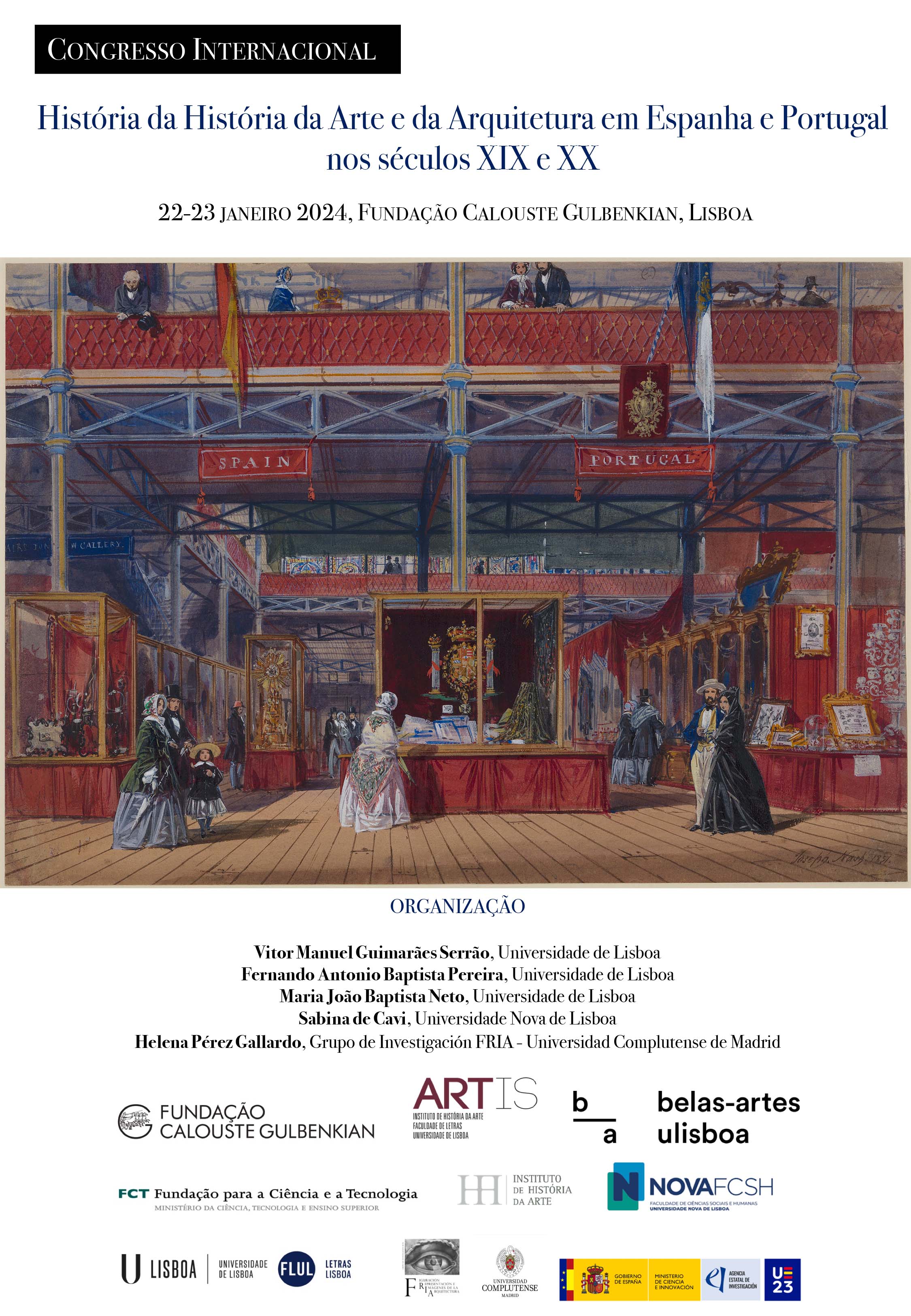
HISTORIOGRAPHY OF PORTUGUESE ART AND ARCHITECTURAL HISTORY IN THE XIX AND XX CENTURY
22-23 January, 2024 | Lisbon, Fundação Calouste Gulbenkian > auditorium 3
Investigating the origins of the history of art and architecture in Portugal and on Portugal, this conference focuses and reconstructs the different narratives of the history of art and architecture of Portugal - a country understood here as an artistic, physical, political and cultural geography - built in the 19th and 20th centuries, from which emerged the study, protection and research institutes currently active at a national and international level.
The result of the scientific collaboration between the Universidad Complutense de Madrid, the Universidade Nova of Lisbon, the Universidade de Lisboa, the Facultade de Belas Artes and the Gulbenkian Foundation, the conference corresponds to the second scientific meeting of a broader research project on history and historiography of Iberian art entitled Iberian Art and Architecture: Art and Architectural History in the Iberian Peninsula, conceived, coordinated and directed by Helena Pérez Gallardo (Universidad Complutense Madrid), Sabina de Cavi (Universidade Nova Lisboa) and Thomas DaCosta Kaufmann (Princeton University), financed by the Spanish project (I+D PID2021-125494NB-I00), financed by the Ministerio de Ciencia e Innovación of Spain (I+D PID2021-125494NB-I00), in the years 2022-2025. The Portuguese meeting, which will take place in the Auditorium 3 of the Gulbenkian Foundation, which participates as a collaborating institution together with the IHA (Universidade Nova, Lisboa), ARTIS (Universidade de Lisboa), CIEBA (Facultade de Belas Artes Universidade de Lisboa) and the FRIA research group (Universidad Complutense de Madrid), has been organized by an exceptional scientific committee (Professors Vitor Serrao, Fernando Antonio Baptista Pereira, Maria João Neto, Sabina de Cavi, Helena Pérez Gallardo), and counts with the presence of Prof. Thomas DaCosta Kaufmann (Princeton University, USA) as keynote speaker and respondent.
[ Programme ]
More information
Back







